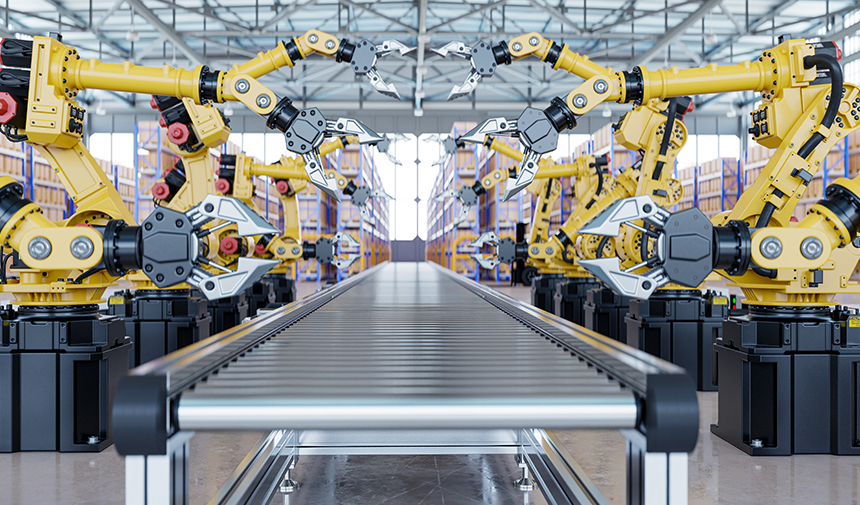Industry 4.0 is revolutionizing modern factories. This new industrial revolution refers to the intensive use of automation and digitalization in production processes. Innovative solutions such as robotics, big data analytics, artificial intelligence and the Internet of Things (IoT) are making factories more efficient, flexible and intelligent. Here are the impacts of Industry 4.0 in factories and the opportunities it offers:
The Rise of Robotic Technologies
Robotic technologies are one of the most prominent components of Industry 4.0. Modern robots are replacing human labor on production lines, performing tasks faster, more precisely and efficiently. For example, industrial robots used in assembly lines automate processes such as transporting materials, assembling parts and packaging products. This minimizes human errors and shortens production times.
In addition, the integration of robotic technologies provides great advantages in terms of occupational safety. Robots working in hazardous jobs reduce occupational accidents by protecting people from risky environments. This both increases productivity and protects worker health in factories.
Big Data and Artificial Intelligence
Big data and artificial intelligence, another key component of Industry 4.0, play a critical role in optimizing production processes. Factories collect large amounts of data through sensors and IoT devices. This data is analyzed at every stage of production processes to develop solutions to increase efficiency. For example, malfunctions in production lines can be detected and prevented in advance with artificial intelligence algorithms.
Artificial intelligence is also used in production planning by making demand forecasts. By analyzing historical data and market trends, it is determined which products need to be produced, when and how much. In this way, inventory costs are reduced and customer demands are responded to faster.
Internet of Things (IoT)
IoT is another key component of Industry 4.0. IoT devices connect machines and equipment in factories, allowing them to communicate. This connection makes it possible to monitor and manage production processes in real time. For example, information such as a machine’s operating status, energy consumption and maintenance needs are continuously monitored through IoT sensors. In this way, potential malfunctions can be detected in advance and preventive maintenance can be carried out.
IoT also offers great advantages in supply chain management. All stages in the production process are monitored and optimized thanks to IoT devices. From raw material procurement to the delivery of products to customers, every step can be controlled in real time. This increases efficiency in production processes and reduces costs.
The Future of Factory Automation
Industry 4.0 and robotics are shaping the future of factories. In the future, production processes are expected to become even more efficient with more automation and digitalization. In particular, with the development of technologies such as artificial intelligence and machine learning, factories will become smarter and more predictable.
In addition, flexible production systems and modular structures will enable factories to quickly adapt to different products. This will enable faster response to customer demands and increase competitiveness. These innovations offered by Industry 4.0 will make significant contributions to making factories sustainable and competitive.
Conclusion
Industry 4.0 and robotic technologies are revolutionizing factories. Automation and digitalization are making production processes more efficient, flexible and secure. Innovative solutions such as big data analytics, artificial intelligence and IoT are making factories even smarter and more predictable in the future. This technological revolution offers great opportunities in the industry and increases the competitiveness of factories.



